#Krzysztof Piesiewicz
Text
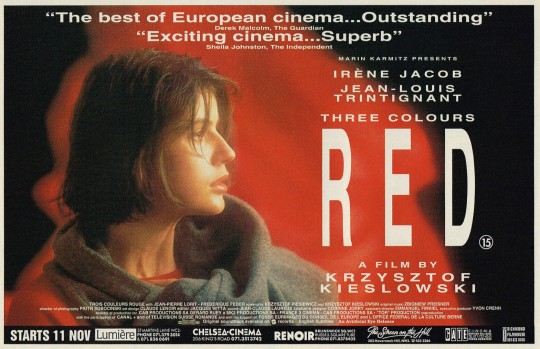
#Three Colours Red#Trois couleurs Rouge#Irène Jacob#Krzysztof Kieslowski#Krzysztof Piesiewicz#Agnieszka Holland#Edward Zebrowski#Edward Klosinski#90s
36 notes
·
View notes
Text
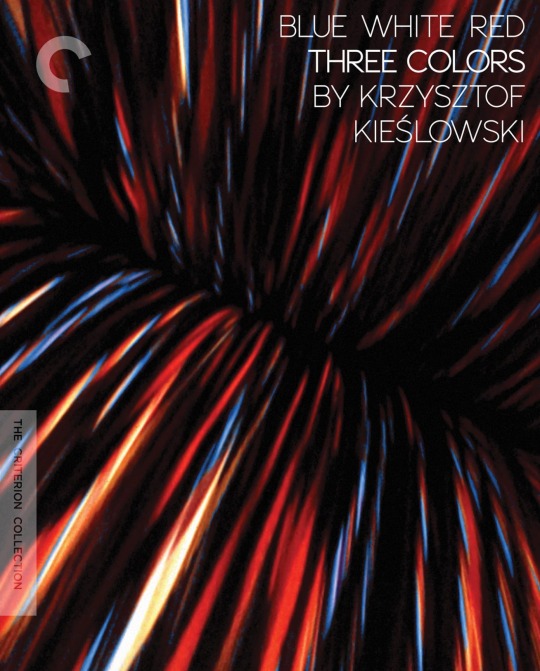
Other than Dazed and Confused the @criterioncollection will also release another big 4K UHD upgrade: the legendary tricolore!
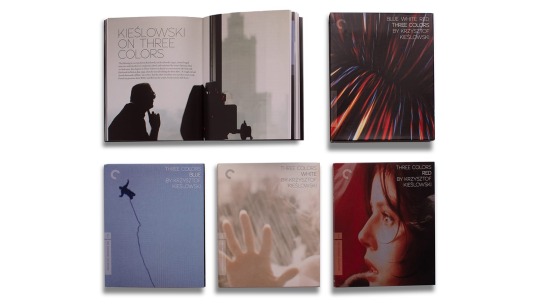
Three Colors
This boldly cinematic trio of stories about love and loss, from Krzysztof Kieślowski was a defining event of the art-house boom of the 1990s. The films are named for the colors of the French flag and stand for the tenets of the French Revolution—liberty, equality, and fraternity—but that hardly begins to explain their enigmatic beauty and rich humanity. Set in Paris, Warsaw, and Geneva, and ranging from tragedy to comedy, Blue, White, and Red (Kieślowski’s final film) examine with artistic clarity a group of ambiguously interconnected people experiencing profound personal disruptions. Marked by intoxicating cinematography and stirring performances by such actors as Juliette Binoche, Julie Delpy, Irène Jacob, and Jean-Louis Trintignant, Kieślowski’s Three Colors is a benchmark of contemporary cinema.
SPECIAL FEATURES
4K UHD and Blu-ray: New 4K digital restorations, with 5.1 surround DTS-HD Master Audio soundtracks; Blu-ray-only edition: High-definition digital restorations, with 2.0 DTS-HD Master Audio soundtracks; DVD: High-definition digital restorations
In the 4K UHD edition: One 4K UHD disc of each film presented in Dolby Vision HDR and one Blu-ray of each film with special features
Three cinema lessons with director Krzysztof Kieślowski
Interviews with cowriter Krzysztof Piesiewicz, composer Zbigniew Preisner, and actors Julie Delpy, Irène Jacob, and Zbigniew Zamachowski
Selected-scene commentary featuring actor Juliette Binoche
Video essays by film critics Annette Insdorf, Tony Rayns, and Dennis Lim
Documentary from 1995 featuring Kieślowski
Three short films by Kieślowski—The Tram (1966), Seven Women of Different Ages (1978), and Talking Heads (1980)—plus the short film The Face (1966), starring Kieślowski
Interview programs on Kieślowski’s life and work, featuring Binoche, Insdorf, Jacob, film critic Geoff Andrew, filmmaker Agnieszka Holland, cinematographer Sławomir Idziak, producer Marin Karmitz, and editor Jacques Witta
Behind-the-scenes programs for White and Red, and a short documentary on Red’s world premiere
Trailers
New and improved English subtitle translations
PLUS: Essays by film critics Colin MacCabe, Nick James, Stuart Klawans, and Georgina Evans; an excerpt from Kieślowski on Kieślowski; and reprinted interviews with cinematographers Idziak, Edward Kłosiński, and Piotr Sobociński
Covers by Sarah Habibi
#Three Colors#three colors trilogy#Krzysztof Kieślowski#The Criterion Collection#4k uhd blu ray#film classics
3 notes
·
View notes
Text
Essay: Is Edgar Wright An Auteur?

Edgar Wright is an English writer, director and producer, he began making short films when he was a teenager, they were mostly spoof genre films. This theme of spoof and genre films would carry onto his career. His first feature film was the spoof western ‘A Fistfull of Fingers’ in 1995. While the film received mixed reviews and was considered a Box Office Bomb, it got him noticed by comedians. During the late 90s, Wright moved on to direct several BBC shows with comedians. In 1998, Wright was contacted by Simon Pegg and Jessica Hynes to be the director of their series ‘Spaced’, a sitcom about flatmates. Wright gave Spaced a different visual style from other sitcoms, doing dramatic angles akin to sci-fi and horror films. The success of Spaced gave Wright the move to feature films.
His second feature was ‘Shaun of the Dead’, a zombie comedy mixed with ‘Brit Flick’ romantic comedy with nods to classic Romero zombie horror. The film was a success and was an international hit. Wright and Pegg planned out three more films in the same vein that they called the “Three Flavours Cornetto Trilogy”, named after Krzysztof Piesiewicz’s Three Colours Trilogy. The other films were Hot Fuzz, a police buddy comedy where Police Sergeant Nicholas Angel transfers from London to Sanford only to discover something grisly, and The World's End, a sci-fi comedy where a group of old school friends return to their home town for a pub crawl. These films would become perhaps his best-known work.
In 2010 he adapted the comic book ‘Scott Pilgrim’ into a feature film, however, the film flopped despite critical reception and praise from fellow directors such as Kevin Smith, Quentin Tarantino and Jason Reitman. Wright was set to direct the Marvel Comics film ‘Ant-Man’ having written the story and screenplay with Joe Cornish. However, he left the project due to creative differences but was still given a writer's credit and his mark was definitely left on the finished film. For example, the film's heist plot is very different to other Superhero films that came before it. His next film ‘Baby Driver’ (2017) was described by Hollywood Deadline as “a collision of crime, action, music and sound’. Wright’s most recent film was ‘Last Night In Soho’ (2021) a psychological horror different to his norm but the main parts of Wright’s comedy find their way into the film.
What we can see from the filmography of Wright is that he can do genre films and put his own spin on the genre and with Baby Driver, it’s not just an action film, it’s an action, romance, musical, crime film.
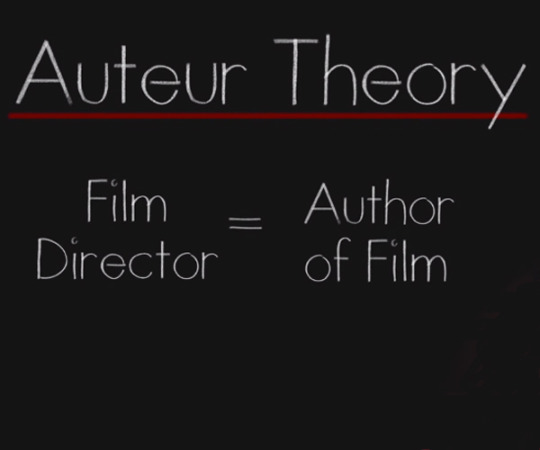
What is Auteur Theory?
No one can agree on what the exact definition of Auteur Theory is, an Auteur is defined by Britannica as “[the] theory of filmmaking in which the director is viewed as the major creative force in a motion picture”. This theory suggests that the film should be judged on who the director is, for example, some have suggested that the plot of ‘Once Upon A Time is Hollywood’ is quite weak but because it is a Quentin Tarantino film people are going to rate it highly. A film takes the work of hundreds of thousands of people to make it and no one person can be credited for the success or the failure of the film.
Others have defined Auteur Theory as “a film is a reflection of the director’s artistic vision; so, a movie directed by a given filmmaker will have recognizable, recurring themes and visual queues that inform the audience who the director is (think a Hitchcock or Tarantino film) and shows a consistent artistic identity throughout that director’s filmography.” (Indie Film Hustle) This means that a film made by an Auteur will have a recognizable ‘flair’ that the Auteur shows in all of their work. For example, in most of Tarantino’s films, there are storylines that do not follow a conventional timeline. He also uses a purposefully excessive amount of bloodshed in a satirical way often with repetition. This definition I agree with as it means that the film can be a success or a flop, but it is still recognisable as the work of the director.
How does Edgar Wright's comedy style make him an Auteur?
Edgar Wright is known for his musical timing best seen in Baby Driver where just about all of the action sequences are timed to the track or tracks that are playing. The best example of this is in the opening scene set to Bellbottoms by The Jon Spencer Blues Explosion. To Wright, the screen is his playground and instead of writing jokes into the dialogue and keeping a bland two-shot between the characters he will write the jokes into the edit and into the language of the film. For example, in The World’s End, the scene when the group go into the first pub and order 5 beers but then Andy cuts in and asks for water instead. The way Garry reacts to this is how Edgar Wright makes his comedy. He makes the edit do the heavy lifting. It also shows another trait of Wright, his match cuts between the glasses, the taps and then to the table.
The YouTube channel Every Frame a Painting makes the point that comedy films, especially American comedies, have lost the way of filmmaking and that they are just lightly edited improv between actors, only using a small portion of the range film provides to make jokes. He claims that only animation and adverts have retained their visual comedy. Edgar Wright is one of the few directors using the full range of films to make a comedy, using dialogue, sound and cinematography. Wright has said that his comedy was inspired by the satirical nature of Evil Dead II (1987) directed by Sam Rami and has said many times that his favourite film is An American Werewolf in London (1981). While these are both horror films first, they also have elements of dark humour in them.
In conclusion, I believe that Edgar Wright is an auteur as defined by Indie Film Hustle, and that he has a certain creative flair that shows in his work. However, this isn’t just because of him. For example, The Cornetto Trilogy was written by Wright with Simon Pegg. Cinematographer Bill Pope has worked with Wright on Scott Pilgrim, Worlds End and Baby Driver. Producer Nina Park has worked with Wright on most of his films. All of these people add to the creative process. In conclusion, Edgar Wright has a flair in his filmmaking but this isn’t pulled off solely because of him, there is a team of hundreds of thousands who work with him to make each of his films.

Edgar Wright Filmography:
Fistfull of Fingers (1995)
Asylum (1996)
Alexei Sayle’s Merry-Go-Round (1998)
Spaced (1999-2001)
Shaun of the Dead (2004)
Hot Fuzz (2007)
Scott Pilgrim vs. The World (2010)
The Adventures of Tintin (2011) (Writer Only)
The World’s End (2013)
Ant-Man (2015) (Writer and Story Only)
Baby Driver (2017)
The Sparks Brothers (2021)
Last Night in Soho (2021)
All images are owned by their respective copyright holders.
Written by TommyB in 2022
Sources:
Edgar Wright:
Wikipedia Contributors (2019). Edgar Wright. [online] Wikipedia. Available at: https://en.wikipedia.org/wiki/Edgar_Wright.
www.earwolf.com. (n.d.). Beethoven’s 5th: F*ck the Fourth, episode #729 of Comedy Bang Bang: The Podcast on Earwolf. [online] Available at: https://www.earwolf.com/episode/beethovens-5th-fck-the-fourth/ [Accessed 4 May 2022].
Every Frame a Painting (2014). Edgar Wright - How to Do Visual Comedy. YouTube. Available at: https://www.youtube.com/watch?v=3FOzD4Sfgag.
web.archive.org. (2007). Interview: Edgar Wright for ‘Hot Fuzz’. [online] Available at: https://web.archive.org/web/20070523130218/http://www.darkhorizons.com/news07/fuzz2.php [Accessed 4 May 2022].
Tapley, K. and Tapley, K. (2017). Playback: Edgar Wright on ‘Baby Driver,’ Music and Walking Away From ‘Ant-Man’. [online] Variety. Available at: https://variety.com/2017/film/news/playback-podcast-edgar-wright-baby-driver-1202467275/.
HuffPost UK. (2015). Watch The First Trailer For Marvel’s ‘Ant-Man’. [online] Available at: https://www.huffingtonpost.co.uk/entry/ant-man-trailer_n_6425174
[Accessed 4 May 2022].
Jr, M.F. and Jr, M.F. (2014). Comic-Con: Off ‘Ant-Man’ Hill, Edgar Wright Sets Sights On ‘Baby Driver’. [online] Deadline. Available at: https://deadline.com/2014/07/comic-con-off-ant-man-hill-edgar-wright-sets-sights-on-baby-driver-807971/ [Accessed 4 May 2022].
Empire. (n.d.). Edgar Wright’s Next Film Is A Psychological Horror, Plus Baby Driver 2 Update – EXCLUSIVE. [online] Available at: https://www.empireonline.com/movies/news/edgar-wright-next-film-psychological-horror-plus-baby-driver-2-update-exclusive/ [Accessed 4 May 2022].
www.youtube.com. (n.d.). The World’s End - A tap water - The First Post. [online] Available at: https://youtu.be/UhsqHk8J58M [Accessed 4 May 2022].
Auteur Theory:
The Editors of Encyclopedia Britannica (2017). auteur theory | Definition & Directors. In: Encyclopædia Britannica. [online] Available at: https://www.britannica.com/art/auteur-theory.
Wikipedia Contributors (2019). Auteur. [online] Wikipedia. Available at: https://en.wikipedia.org/wiki/Auteur.
Indie Film Hustle (2018). What is Auteur Theory and Why Is It Important? - Indie Film Hustle. [online] Indie Film Hustle. Available at: https://indiefilmhustle.com/auteur-theroy/.
www.youtube.com. (n.d.). What is an Auteur? Auteur theory explained! Film & Media Studies revision. [online] Available at: https://youtu.be/_MXv41Ja3h4 [Accessed 4 May 2022].
The Origins of Auteur Theory. (2015). YouTube. Available at: https://www.youtube.com/watch?v=nfHnuZqtV68.ukdiss.com. (n.d.). Quentin Tarantino Auteur Theory. [online] Available at: https://ukdiss.com/examples/auteur-theory-quentin-tarantino.php
3 notes
·
View notes
Text
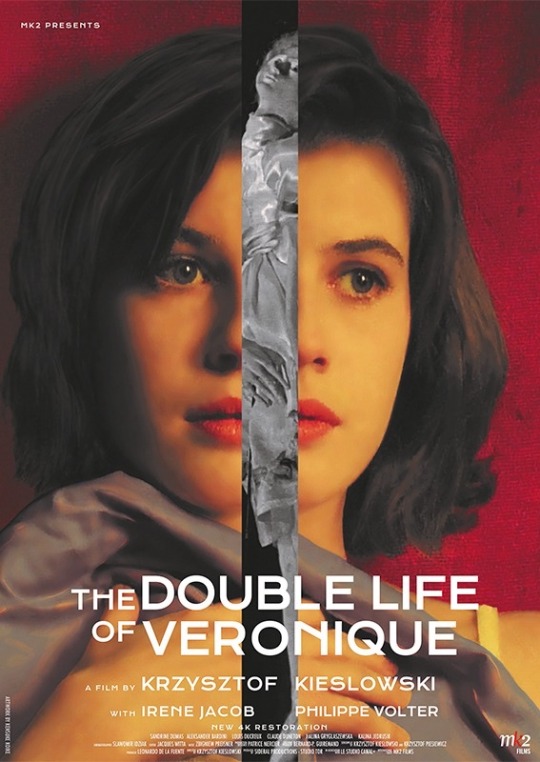
73 muestra internacional de cine en la @cinetecanacionalmx
La doble vida de Verónica
La double vie de Véronique, Francia-Polonia-Noruega, 1991, 96 min.
D: Krzysztof Kieślowski. G: Krzysztof Kieślowski y Krzysztof Piesiewicz. F en C: Sławomir Idziak. M: Zbigniew Preisner. E: Jacques Witta. Con: Irène Jacob (Weronika/Véronique), Philippe Volter (Alexandre Fabbri), Sandrine Dumas (Catherine), Halina Gryglaszewska (tía), Władysław Kowalski (padre de Weronika), Jerzy Gudejko (Antek), Claude Duneton (padre de Véronique). CP: Sidéral Productions, Le Studio Canal+, Studio Tor, Norsk Film. Prod: Leonardo de la Fuente. Dist: FDR.
Weronika vive en Polonia y tiene una brillante carrera como cantante, pero padece una grave enfermedad cardiaca. A miles de kilómetros de ahí, en Francia, vive Véronique, otra joven idéntica a ella, también cantante y con la misma dolencia. Aunque desconocidas la una de la otra, ambas mujeres comparten una enigmática conexión. La doble vida de Verónica, una de las películas más apreciadas de Krzysztof Kiéslowski, es una cautivadora y misteriosa reflexión sobre la identidad, el amor y la intuición. Con la brillante fotografía de Sławomir Idziak y la actuación de Irène Jacob como las dos Verónicas, Kieślowski creó una de las obras más metafísicas del cine, una inolvidable sinfonía de sentimientos.
#cinetecanacional #muestrainternacionaldecine #cine #kino #film #ladoblevidadeveronica
1 note
·
View note
Text
November Media Breakdown
Movies:
Three Colors: Blue (1993) - Krzysztof Piesiewicz
Glass Onion (2022) - Rian Johnson
Sun Ra: A Joyful Noise (1980) - Robert Mugge
Imagine the Sound (1981) - Ron Mann
This Gun for Hire (1942) - Frank Tuttle
Portrait of a Lady on Fire (2019) - Céline Sciamma
All Quiet on the Western Front (2022) - Edward Berger
The 355 (2022) - Simon Kinberg
No Time to Die (2021) - Cary Joji Fukunaga
Marcel the Shell with Shoes On (2022) - Dean Fleischer-Camp
Nope (2022) - Jordan Peele
Bram Stoker’s Dracula (1994) - Francis Ford Coppola
Books:
A Little Devil in America (Notes in Praise of Black Performance) - Hanif Abdurraqib
The Man in the High Castle - Phillip K. Dick
Blues Legacies and Black Feminism: Gertrude Ma Rainey, Bessie Smith, and Billie Holiday - Angela Y. Davis
TV Shows:
Season 1 of She-Hulk
Season 3 of The Sopranos
Top 3 Albums:
Far - Regina Spektor (2009) | indie rock
Casual (Single) - Chappell Roan (2022) | indie pop
Jumpin’ With Jonah - Jonah Jones (2000) | jazz
1 note
·
View note
Text
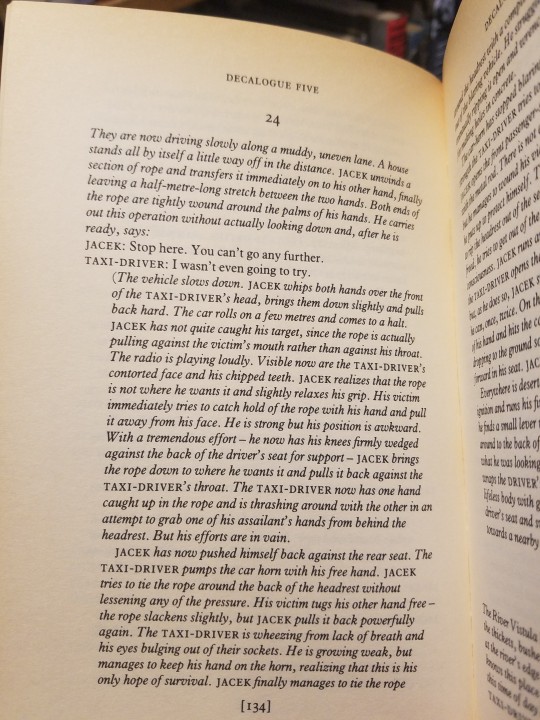
dekalog V -- krzysztof kieslowski & krzysztof piesiewicz
1 note
·
View note
Text
3️⃣1️⃣ La double vie de Véronique (1991)

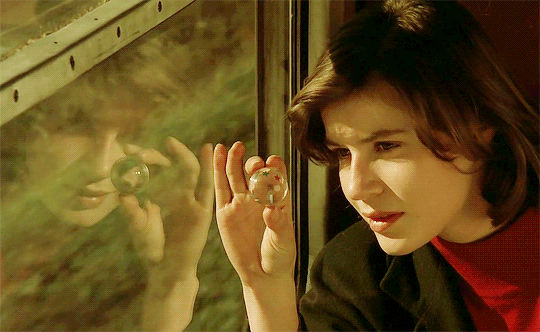

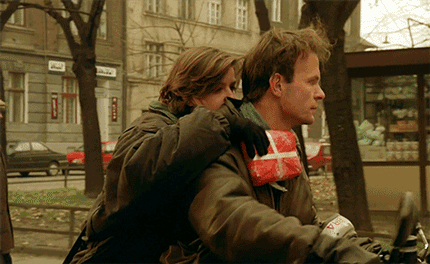
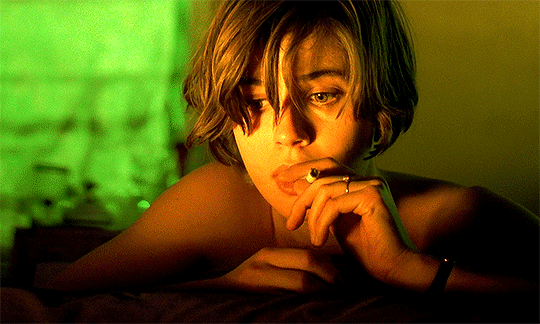

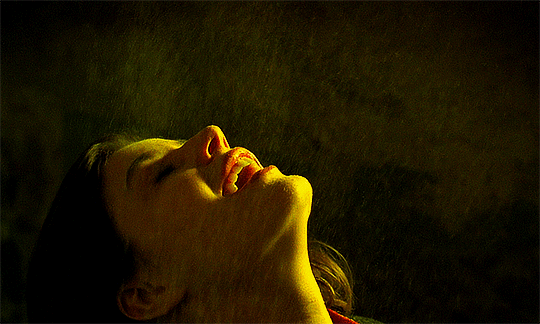
41 notes
·
View notes
Photo

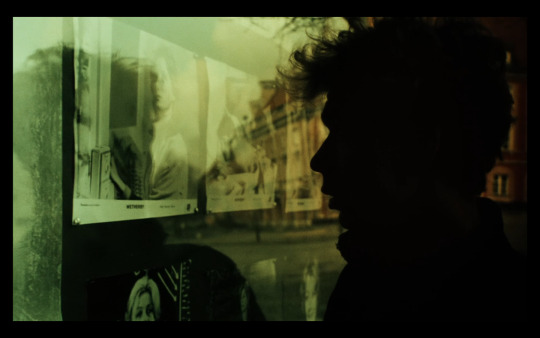
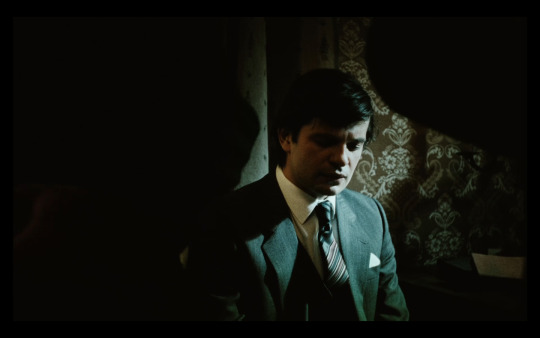

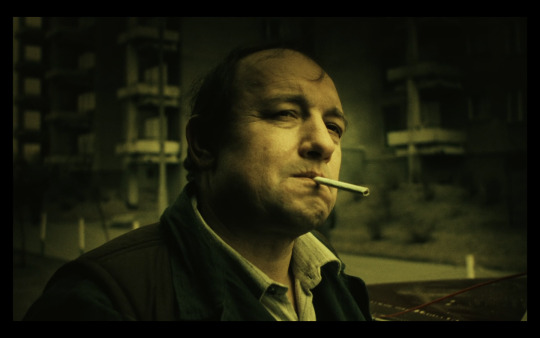



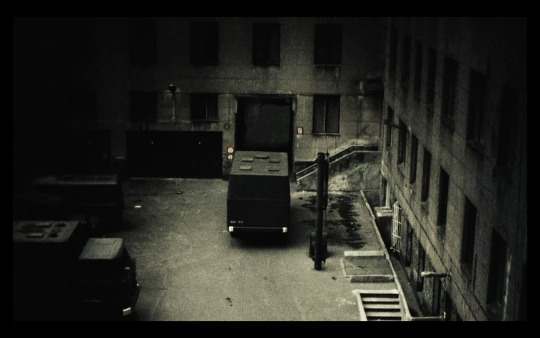

A Short Film About Killing. 1988. Krzysztof Kieślowski. Poland.
#krzysztof kieślowskia#a short film about killing#drama#crime#krÓtki film o zabijaniu#MIROSŁAW BAKA#krzysztof globisz#jan tesarz#mubi#framingtheframe#zbigniew zapasiewicz#krzysztof piesiewicz#artur barcis#poland#cinema#film#Krzysztof Kieslowski
14 notes
·
View notes
Video
youtube
Now I understand her
I understand how she feels.
#the double life of veronique#krzysztof kieslowski#irene jacob#zbigniew preisner#polish cinema#soundtrack#krzysztof piesiewicz#theater#scene#dies#pure cinema
5 notes
·
View notes
Photo
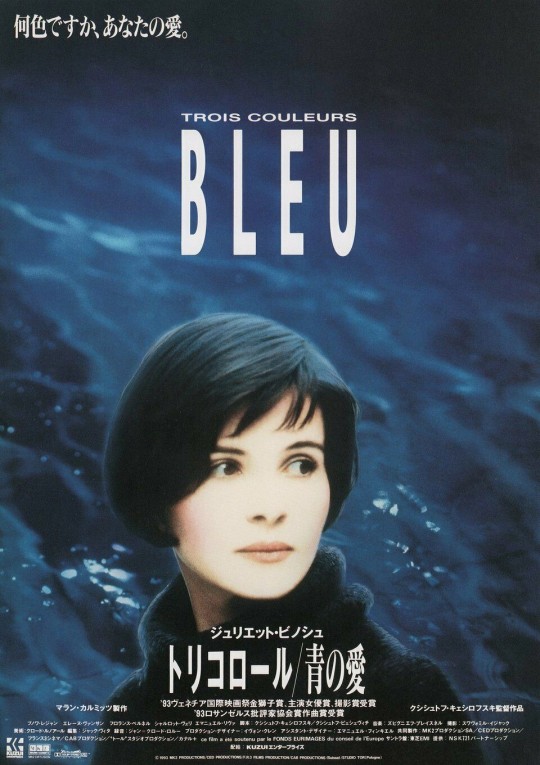


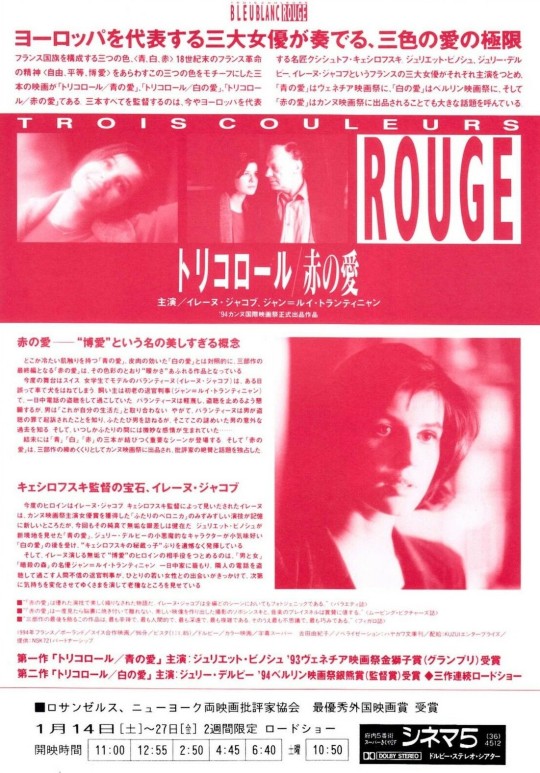
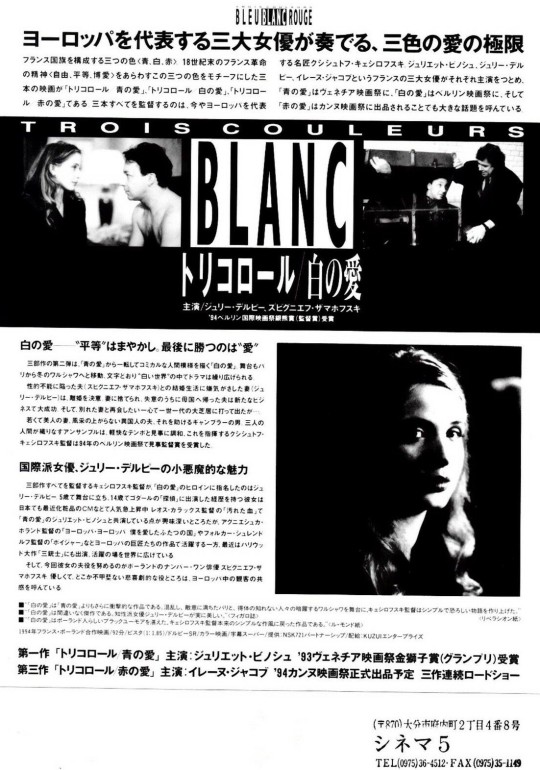
#Three Colours#Krzysztof Kieslowski#Krzysztof Piesiewicz#Juliette Binoche#Julie Delpy#Zbigniew Zamachowski#Irène Jacob#Trois Couleurs#Three Colours White#Three Colours Blue#Three Colours Red#90s
77 notes
·
View notes
Photo
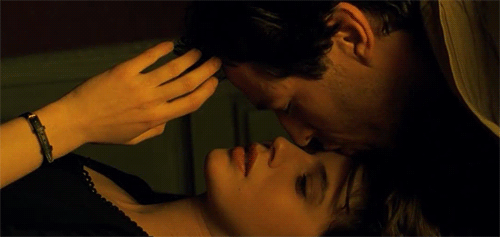
- Véronique?
- Yes?
- I know now why you were the one.
- Yes.
- It was not the book.
- I knew it.
- What?
- Why you were doing it. Since the first night you called me. Even before that.
- You knew?
- Everything. This may have nothing to do with it, or it may. All my life I’ve felt I was in two places at the same time. Here and somewhere else. It’s hard to explain. But I know... I always sense what I have to do.
The Double Life of Véronique (La double vie de Véronique), Krzysztof Kieslowski (1991)
#Krzysztof Kieslowski#Krzysztof Piesiewicz#Irène Jacob#Philippe Volter#Jerzy Gudejko#Halina Gryglaszewska#Wladyslaw Kowalski#Sandrine Dumas#Claude Duneton#Lorraine Evanoff#Slawomir Idziak#Zbigniew Preisner#Jacques Witta#1991
8 notes
·
View notes
Text
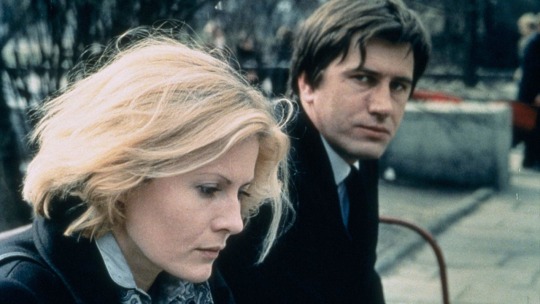
Grażyna Szapołowska and Jerzy Radziwilowicz in No End (Krzysztof Kieslowski, 1985)
Cast: Grażyna Szapołowska, Maria Pakulnis, Aleksander Bardini, Artur Barciś, Danny Webb, Jerzy Radziwilowicz, Krzysztof Krzeminski, Michal Bajor. Screenplay: Krzysztof Kieslowski, Krzysztof Piesiewicz. Cinematography: Jacek Petrycki. Production design: Allan Starski. Film editing: Krystyna Rutkowska. Music: Zbigniew Preisner.
Krzysztof Kieslowski's No End takes place during the suppression of Solidarity and the imposition of martial law in Poland in 1982, producing the melancholy, despairing tone that pervades the entire film. Kieslowski and his co-screenwriter, Krzysztov Piesiewicz, place the underlying politics in the context of personal loss, the death of the lawyer Antek Zyro (Jerzy Radziwilowicz) and its effect on his wife, Urszula (Grazyna Szapolowska), and child (Krzysztof Krzeminski). Having the dead Antek address the camera at the film's beginning is a bold move, one that threatens to turn the film into a sentimental fable about a love that persists after death. But as we see, the relationship of husband and wife was not an ideal one, and the feeling of guilt that she experiences after his death is potently developed. (I'm not sure it entirely justifies the film's ending, however.) A premature death like Antek's inevitably results in unfinished business, not only in the life of his family but also in the legal case, that of the incarcerated political prisoner Darek Stach (Artur Barcis) he left undefended. The defense of Stach devolves upon Mieczyslaw Labrador (Aleksander Bardini), the aging lawyer who would not have been Antek's choice for the role. Labrador saves Stach from a longer prison term by engineering a compromise with the judge, a move opposed by Labrador's own assistant (Michal Bajor), who still clings to some of the ideals of the suppressed Solidarity movement. The decision makes no one really happy, because Stach, like everyone else in Poland, isn't really free. The interweaving of the Stach case and Urszula's attempts to resume a normal life despite grief and guilt is sensitively handled, with the great help of Krystyna Rutkowska's editing and Zbigniew Preisner's score.
0 notes
Photo
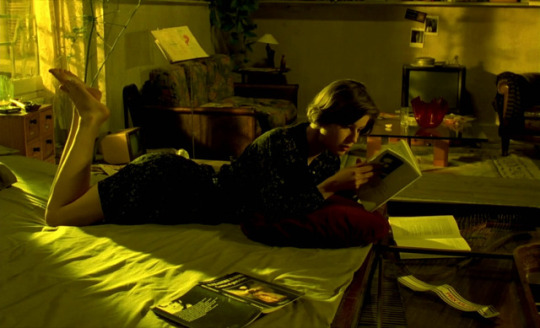
The Double Life of Veronique - Krzysztof Kieslowski
#La double vie de Véronique#The Double Life of Veronique#Krzysztof Kieslowski#Krzysztof Kieślowski#krzysztof piesiewicz#iréne jacob#booksndmovies#books in movies#books#book#reading#european cinema#european movies#polish cinema#polish movies#french cinema#french movies
485 notes
·
View notes
Text
“Sono sempre restio a sottolineare una caratteristica specifica del lavoro di un grande regista, perché ciò tende inevitabilmente a semplificarne e sminuirne il lavoro. Ma riguardo a questa sceneggiatura (Decalogo N.d.R.), di Krzysztof Kieślowski e del suo coautore, Krzysztof Piesiewicz, non dovrebbe essere fuori luogo osservare che essi hanno la rarissima capacità di drammatizzare le loro idee piuttosto che raccontarle solamente. Esemplificando i concetti attraverso l'azione drammatica della storia essi acquisiscono il potere aggiuntivo di permettere al pubblico di scoprire quello che sta realmente accadendo piuttosto che semplicemente raccontarglielo. Lo fanno con tale abbagliante abilità, che non riesci a percepire il sopraggiungere dei concetti narrativi e a materializzarli prima che questi non abbiano già raggiunto da tempo il profondo del tuo cuore.”
Stanley Kubrick
1 note
·
View note
Text
A Short Film About Killing (1988)
A Short Film About Killing (1988)
KRZYSZTOF KIESLOWSKI
Bil’s rating (out of 5): BBBB
Original Title: Krótki film o zabijaniu
Poland, 1988. Przedsiebiorstwo Realizacji Filmów “Zespoly Filmowe”, Wytwórnia Filmów Dokumentalnych, Zespol Filmowy “Tor”. Screenplay by Krzysztof Kieslowski, Krzysztof Piesiewicz. Cinematography by Slawomir Idziak. Produced by Ryszard Chutkowski. Music by Zbigniew Preisner. Production Design by Halina…

View On WordPress
#Aleksander Bednarz#Alicja Wolska#Andrzej Gawronski#Andrzej Mastalerz#Artur Barcis#Barbara Dziekan#Bogdan Niewinowski#Boguslaw Hubicki#Borys Marynowski#Cannes 1988#Cezary Switkowski#Criterion Collection#Elzbieta Helman#European Film 1988#Ewa Smal#Halina Dobrowolska#Hanna Cwiklo#Helena Kowalczykowa#Henryk Guzek#Henryk Lapinski#Iwona Glebicka#Jan Tesarz#Jerzy Zass#Jolanta Mielech#Karol Stepkowski#Krystyna Janda#Krzysztof Globisz#Krzysztof Kieslowski#Krzysztof Luft#Krzysztof Piesiewicz
0 notes
Photo
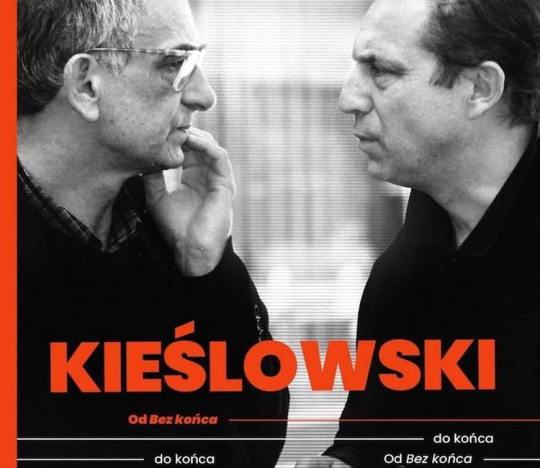
Kieślowski. Od Bez końca do końca Mikołaj Jazdon Krzysztof Piesiewicz➡ https://przemyslawpufal.pl/kieslowski-od-bez-konca-do-konca-mikolaj-jazdon-krzysztof-piesiewicz/
0 notes